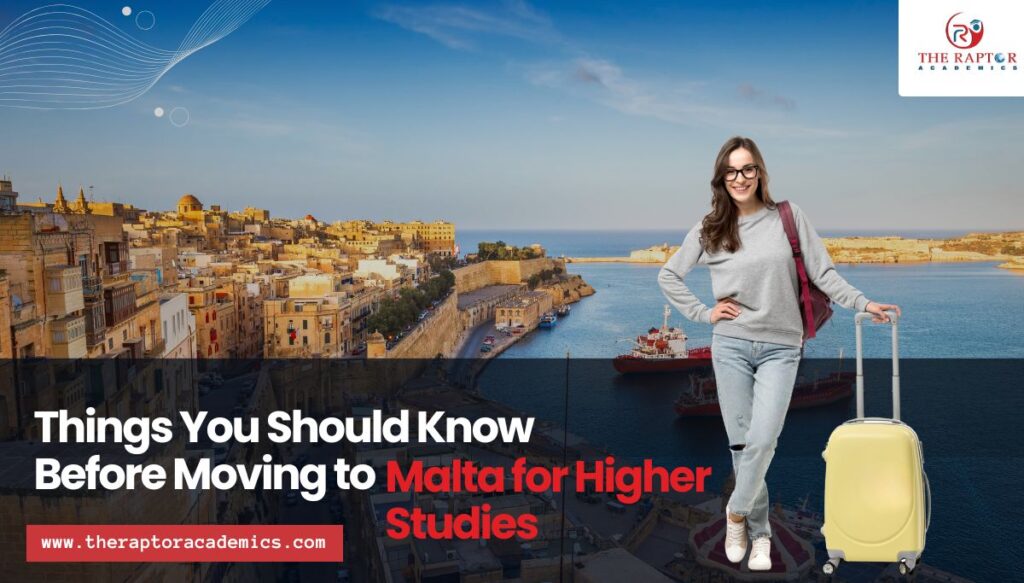Malta, an island nestled in the heart of the Mediterranean, has recently emerged as a top destination for international students seeking higher education. Though it was not a traditional go-to for students planning to study abroad, Malta is now gaining recognition for its affordable education, high-quality academic institutions, and vibrant student life.
Whether you’re looking for a cost-effective study destination, a multicultural environment, or just an opportunity to explore the Mediterranean, Malta offers a unique blend of academic excellence and cultural richness.
This article explores everything you need to know before making the move to Malta for your higher studies in 2025. From education quality and cost of living to social integration and local culture, here’s a complete guide for international students thinking about studying in Malta.
1. Affordable Education and Living Costs
One of the biggest draws for international students to Malta is its affordability compared to other European study destinations. Tuition fees in Malta are considerably lower than in many Western European countries. On average, tuition fees range from €6,000 to €12,000 annually for undergraduate programs, and €8,000 to €18,000 for postgraduate programs. These costs are much more affordable than in countries like the UK, the US, or Australia, where tuition fees can easily exceed €20,000.
In addition to affordable tuition, the cost of living in Malta is relatively low. Students can expect to pay about €800 to €1,200 per month for accommodation, food, transportation, and other living expenses. This makes Malta one of the most budget-friendly study destinations in Europe. While cities like Valletta or Sliema may be slightly more expensive, students can save by opting for accommodation outside of these areas.
Moreover, Malta offers the “Malta Get Qualified Scheme”, a tax incentive for local and international students that offers a 70% refund on tuition fees after graduation, further lowering the cost of higher education.
2. English is the Official Language
For many international students, the fear of language barriers can be a significant obstacle when moving to study abroad. However, in Malta, English is one of the official languages, making it a popular destination for students who prefer to study in English. With nearly 90% of the population speaking English, students can easily adapt to their academic environment without the need to learn a new language.
Since Malta was a British colony until 1964, the influence of English is deeply embedded in the culture. English is widely used in universities, workplaces, and everyday communication. This makes it easier for international students to settle in and excel in their studies without worrying about language-related challenges.
Suggested Read: Top 10 European English-speaking countries [Updated 2025]
3. High-Quality Education and Recognized Institutions
Malta’s higher education system is recognized for its quality and innovation. The country offers a broad range of undergraduate and postgraduate programs, many of which are internationally recognized. The University of Malta is the oldest and most prestigious educational institution in the country and is part of the European Union’s Bologna Process, ensuring that its qualifications are recognized across Europe and beyond.
In addition to the University of Malta, there are other institutions like GBS Malta and MCAST that offer specialized programs in fields such as business, management, technology, and engineering. GBS Malta, for instance, offers globally recognized degrees in business management and marketing with a focus on practical skills and career preparation.
With a strong emphasis on vocational training and a diverse curriculum, students in Malta are equipped to enter the global job market upon graduation.
4. Cultural Diversity and Multicultural Environment
Malta is a melting pot of cultures, with students from all over the world coming together to study. The country’s multicultural environment provides international students with the opportunity to meet people from different backgrounds, enhancing their academic and personal growth. This diversity fosters an atmosphere of global connectivity, making it easier for students to form meaningful relationships and develop a deeper understanding of the world.
Whether you’re enjoying a traditional Maltese festival, exploring the island’s rich historical sites, or simply sharing a coffee with classmates from around the world, Malta’s welcoming and diverse atmosphere provides a unique cultural experience that adds value to your educational journey.
5. Career Opportunities and Work While Studying
Malta offers excellent career prospects for students, especially those looking to work part-time while studying. As a member of the European Union, Malta adheres to EU regulations, which allow international students to work up to 20 hours per week during term time and full-time during holidays. This flexibility gives students the opportunity to gain valuable work experience while supporting their living expenses.
The country’s growing job market offers part-time positions in sectors like hospitality, retail, tourism, and information technology. Malta is also home to numerous international businesses in finance, digital innovation, and blockchain technology, making it an attractive place for graduates seeking post-study employment.
Moreover, Malta’s strategic position within the EU allows graduates to explore career opportunities across the Schengen Area, opening doors to a broader job market.
6. Pleasant Mediterranean Climate
Another reason students love Malta is its Mediterranean climate. With over 300 days of sunshine per year, Malta is perfect for students who enjoy outdoor activities. The island’s mild winters and warm summers make it a comfortable destination year-round, ideal for exploring the stunning beaches, hiking, and participating in water sports such as diving, windsurfing, and snorkeling.
For students who enjoy an active lifestyle, Malta offers plenty of opportunities to engage in sports and leisure activities. Whether it’s hiking along scenic trails, enjoying beach volleyball, or exploring the picturesque landscapes, the pleasant weather encourages students to balance academics with outdoor adventures.
7. Affordable Accommodation and Student Housing
When it comes to accommodation, Malta offers a variety of student-friendly housing options. From university dormitories to private apartments and shared flats, students can find accommodation that suits their budget. Areas like Sliema, St. Julian’s, and Gzira are popular among international students, offering proximity to universities, cafes, restaurants, and entertainment spots.
While these areas may be slightly more expensive, students can also opt for accommodation in quieter neighborhoods to save on rent. Malta’s housing market is competitive, but there are plenty of options available for students seeking short-term or long-term stays.
8. Easy Transportation and Getting Around
Malta’s small size makes it easy to get around. Public transportation is primarily served by buses, and the Tallinja card allows students to enjoy discounted fares for as little as €0.75 per journey. Buses connect key areas such as the University of Malta, Valletta, and Sliema, making it easy for students to travel without the need for a car.
For those who prefer to drive, Malta has a relatively simple process for obtaining a driving license. However, traffic can be busy, and parking spaces are limited in some areas, so students often rely on public transport or walking.
9. Safety and Quality of Life
Malta is one of the safest countries in Europe. With a low crime rate and friendly locals, international students can feel at ease both during the day and at night. The island’s relaxed pace of life combined with its close-knit community ensures that students can thrive academically and socially.
In terms of healthcare, Malta has an excellent public healthcare system that offers free or affordable services for residents. Students are also encouraged to take out private health insurance, which is affordable and ensures quicker access to services.
10. Unforgettable Cultural and Social Events
Malta is not only a place for academics but also a hub of social and cultural activities. The island hosts festivals, concerts, and local events throughout the year, giving students plenty of opportunities to unwind and socialize. From the Malta International Arts Festival to Carnival celebrations and fireworks festivals, there’s always something exciting happening on the island.
Studying in Malta provides a unique blend of academic rigor and cultural immersion, giving students the chance to experience both the intellectual and social side of life in a Mediterranean setting.
Conclusion
Malta offers a unique, cost-effective, and enriching study abroad experience for international students. With high-quality education, affordable living costs, a multicultural environment, and excellent job prospects, it’s no wonder that Malta is becoming an increasingly popular destination for students worldwide.
If you’re looking to explore Europe while pursuing your higher education, Malta provides an ideal blend of academic excellence and vibrant student life. Ready to take the leap? Start your journey with The Raptor Academics, your trusted partner in navigating the world of international education and student life.




